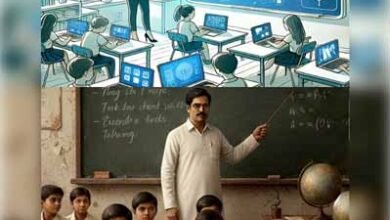
Devastating war…
Introduction
The Russia-Ukraine war is an ongoing armed conflict between Russia and Ukraine that began on February 24, 2022, following the Russian invasion of Ukraine. The conflict is rooted in the collapse of the Soviet Union in 1991, which led to the independence of Ukraine and other former Soviet republics. Russia has long viewed Ukraine as part of its sphere of influence and has sought to prevent it from joining NATO, a Western military alliance.
Background to the conflict
The roots of the Russia-Ukraine war can be traced back to the collapse of the Soviet Union in 1991. Ukraine, which had been part of the Soviet Union since 1922, declared its independence following the collapse of the central government. Russia, which was the largest and most powerful of the former Soviet republics, viewed Ukraine’s independence as a threat to its security and influence.
In the years since the collapse of the Soviet Union, Russia has sought to maintain its influence over Ukraine. In 2008, Russia invaded Georgia, another former Soviet republic, after Georgia announced its intention to join NATO. In 2014, Russia annexed Crimea from Ukraine and began supporting pro-Russian separatists in the Donbas region of eastern Ukraine.
The Russian invasion of Ukraine
On February 24, 2022, Russia launched a full-scale invasion of Ukraine. Russian forces attacked Ukraine from the north, east, and south. Russian President Vladimir Putin justified the invasion by claiming that Ukraine was committing genocide against Russian-speaking residents in the Donbas region and that it posed a threat to Russia’s security.
The Ukrainian military has resisted the Russian invasion, but it is outmatched in terms of manpower and firepower. Russia has made significant gains in the eastern and southern parts of Ukraine, but it has been unable to capture Kyiv, the Ukrainian capital.
The impact of the war
The Russia-Ukraine war has had a devastating impact on Ukraine. Thousands of people have been killed, including civilians, and millions have been displaced from their homes. The war has also caused a humanitarian crisis, with millions of people in need of food, water, and shelter.
The war has also had a significant impact on the global economy. The price of oil, gas, and other commodities has risen sharply, and there are concerns about a global food crisis. The war has also disrupted supply chains and caused uncertainty in the global financial markets.
The international response
The international community has condemned the Russian invasion and imposed a number of sanctions on Russia. The United States and its allies have provided Ukraine with military and financial assistance. However, Russia has so far refused to withdraw its forces from Ukraine.
Prospects for peace
The prospects for peace in Ukraine are bleak. Russia has shown no signs of backing down, and Ukraine has vowed to fight on until its territory is liberated. The war could drag on for months or even years.
Impact on the global food supply
The Russia-Ukraine war is having a significant impact on the global food supply. Ukraine is a major exporter of wheat and other agricultural products. The war has disrupted Ukrainian agricultural production and exports, and this has led to higher food prices around the world.
The war has also had a negative impact on the global fertilizer market. Russia is a major exporter of fertilizers, and the war has led to uncertainty in the global fertilizer market and this has pushed up fertilizer prices.
The combination of higher food prices and higher fertilizer prices is putting a strain on global food security. Millions of people around the world are at risk of hunger due to the war in Ukraine.
Impact on the global energy market
The Russia-Ukraine war is also having a significant impact on the global energy market. Russia is a major exporter of oil and gas. The war has led to uncertainty in the global energy market and this has pushed up energy prices.
The high energy prices are having a negative impact on the global economy. Businesses are facing higher costs, and consumers are facing higher energy bills. The high energy prices are also contributing to inflation.
Conclusion
The Russia-Ukraine war is a major geopolitical crisis with far-reaching implications. The war is a test of the international order and the rules-based international system. It is also a test of the resolve of the West to stand up to Russian aggression.
The war is also having a significant impact on the global economy and food supply. Millions of people around the world are being affected by the war, and the war could have long-term consequences for the global order.
Prime Minister Narendra Modi’s statement, “This is not an age of war but peace,” can be interpreted in several ways.
On one level, it can be seen as a call for de-escalation and diplomacy in the wake of the ongoing conflict between Russia and Ukraine. Modi has been a vocal critic of the war, and he has urged both sides to return to the negotiating table.
Another interpretation of Modi’s statement is that it is a reflection of the changing nature of warfare. In the past, wars were fought primarily between nation-states. However, in today’s world, conflicts are increasingly complex and involve a variety of non-state actors, such as terrorist groups and criminal organizations. This makes it more difficult to resolve conflicts peacefully, but it also means that war is no longer the only option for nations that seek to achieve their goals.
Modi’s statement can also be seen as a broader call for peace and cooperation in the 21st century. In a world that is increasingly interconnected, it is more important than ever for nations to work together to solve common challenges, such as climate change and poverty. War is a major obstacle to progress on these issues, and Modi’s statement is a reminder that there is a better way forward.
Ultimately, the meaning of Modi’s statement is up to the individual to decide. However, it is clear that he is calling for a more peaceful world, and his statement is a reminder that we have a choice to make. We can either choose to continue down the path of conflict and destruction, or we can choose to build a better future for everyone.
Dr.(pro.) Jai Ram Jha (Editor) .
========== ========== ===========
विनाशकारी युद्ध….

परिचय
रूस-यूक्रेन युद्ध रूस और यूक्रेन के बीच चल रहा एक सशस्त्र संघर्ष है जो 24 फरवरी, 2022 को यूक्रेन पर रूसी आक्रमण के बाद शुरू हुआ था। यह संघर्ष 1991 में सोवियत संघ के पतन में निहित है, जिसके कारण यूक्रेन और अन्य पूर्व सोवियत गणराज्यों को स्वतंत्रता मिली। रूस लंबे समय से यूक्रेन को अपने प्रभाव क्षेत्र के हिस्से के रूप में देखता रहा है और उसे पश्चिमी सैन्य गठबंधन नाटो में शामिल होने से रोकने की मांग करता रहा है।
संघर्ष की पृष्ठभूमि
रूस-यूक्रेन युद्ध की जड़ें 1991 में सोवियत संघ के पतन में खोजी जा सकती हैं। यूक्रेन, जो 1922 से सोवियत संघ का हिस्सा था, ने केंद्र सरकार के पतन के बाद अपनी स्वतंत्रता की घोषणा की। रूस, जो पूर्व सोवियत गणराज्यों में सबसे बड़ा और सबसे शक्तिशाली था, यूक्रेन की स्वतंत्रता को अपनी सुरक्षा और प्रभाव के लिए खतरे के रूप में देखता था।
सोवियत संघ के पतन के बाद के वर्षों में, रूस ने यूक्रेन पर अपना प्रभाव बनाए रखने की कोशिश की है। 2008 में, जॉर्जिया द्वारा नाटो में शामिल होने के अपने इरादे की घोषणा के बाद, रूस ने एक अन्य पूर्व सोवियत गणराज्य जॉर्जिया पर आक्रमण किया। 2014 में, रूस ने क्रीमिया को यूक्रेन से अलग कर लिया और पूर्वी यूक्रेन के डोनबास क्षेत्र में रूस समर्थक अलगाववादियों को समर्थन देना शुरू कर दिया।
यूक्रेन पर रूसी आक्रमण
24 फरवरी, 2022 को रूस ने यूक्रेन पर पूर्ण पैमाने पर आक्रमण किया। रूसी सेना ने उत्तर, पूर्व और दक्षिण से यूक्रेन पर हमला किया। रूसी राष्ट्रपति व्लादिमीर पुतिन ने यह दावा करते हुए आक्रमण को उचित ठहराया कि यूक्रेन डोनबास क्षेत्र में रूसी भाषी निवासियों के खिलाफ नरसंहार कर रहा है और इससे रूस की सुरक्षा को खतरा है।
यूक्रेनी सेना ने रूसी आक्रमण का विरोध किया है, लेकिन जनशक्ति और गोलाबारी के मामले में वह उनसे आगे है। रूस ने यूक्रेन के पूर्वी और दक्षिणी हिस्सों में महत्वपूर्ण बढ़त हासिल की है, लेकिन वह यूक्रेन की राजधानी कीव पर कब्ज़ा करने में असमर्थ रहा है।
युद्ध का प्रभाव
रूस-यूक्रेन युद्ध का यूक्रेन पर विनाशकारी प्रभाव पड़ा है। नागरिकों सहित हजारों लोग मारे गए हैं और लाखों लोग अपने घरों से विस्थापित हुए हैं। युद्ध ने मानवीय संकट भी पैदा कर दिया है, लाखों लोगों को भोजन, पानी और आश्रय की आवश्यकता है। युद्ध का वैश्विक अर्थव्यवस्था पर भी महत्वपूर्ण प्रभाव पड़ा है। तेल, गैस और अन्य वस्तुओं की कीमतें तेजी से बढ़ी हैं, और वैश्विक खाद्य संकट के बारे में चिताएँ हैं। युद्ध ने आपूर्ति श्रृंखलाओं को भी बाधित कर दिया है और वैश्विक वित्तीय बाजारों में अनिश्चितता पैदा कर दी है।
अंतर्राष्ट्रीय प्रतिक्रिया
अंतर्राष्ट्रीय समुदाय ने रूसी आक्रमण की निंदा की है और रूस पर कई प्रतिबंध लगाए हैं। संयुक्त राज्य अमेरिका और उसके सहयोगियों ने यूक्रेन को सैन्य और वित्तीय सहायता प्रदान की है। हालाँकि, रूस ने अब तक यूक्रेन से अपनी सेनाएँ वापस बुलाने से इनकार कर दिया है।
शांति की संभावनाएँ
यूक्रेन में शांति की संभावनाएँ धूमिल हैं। रूस ने पीछे हटने का कोई संकेत नहीं दिखाया है और यूक्रेन ने अपने क्षेत्र के आज़ाद होने तक लड़ने की कसम खाई है। युद्ध महीनों या वर्षों तक चल सकता है।
वैश्विक खाद्य आपूर्ति पर प्रभाव
रूस-यूक्रेन युद्ध का वैश्विक खाद्य आपूर्ति पर महत्वपूर्ण प्रभाव पड़ रहा है। यूक्रेन गेहूं और अन्य कृषि उत्पादों का एक प्रमुख निर्यातक है। युद्ध ने यूक्रेनी कृषि उत्पादन और निर्यात को बाधित कर दिया है, और इससे दुनिया भर में खाद्य पदार्थों की कीमतें बढ़ गई हैं।
युद्ध का वैश्विक उर्वरक बाज़ार पर भी नकारात्मक प्रभाव पड़ा है। रूस उर्वरकों का एक प्रमुख निर्यातक है और युद्ध के कारण वैश्विक उर्वरक बाजार में अनिश्चितता पैदा हो गई है और इससे उर्वरक की कीमतें बढ़ गई हैं।
उच्च खाद्य कीमतों और उच्च उर्वरक कीमतों का संयोजन वैश्विक खाद्य सुरक्षा पर दबाव डाल रहा है। यूक्रेन में युद्ध के कारण दुनिया भर में लाखों लोगों पर भुखमरी का खतरा मंडरा रहा है।
वैश्विक ऊर्जा बाज़ार पर प्रभाव
रूस-यूक्रेन युद्ध का वैश्विक ऊर्जा बाजार पर भी खासा असर पड़ रहा है। रूस तेल और गैस का एक प्रमुख निर्यातक है। युद्ध के कारण वैश्विक ऊर्जा बाज़ार में अनिश्चितता पैदा हो गई है और इससे ऊर्जा की कीमतें बढ़ गई हैं। ऊर्जा की ऊंची कीमतें वैश्विक अर्थव्यवस्था पर नकारात्मक प्रभाव डाल रही हैं। व्यवसायों को उच्च लागत का सामना करना पड़ रहा है, और उपभोक्ताओं को उच्च ऊर्जा बिलों का सामना करना पड़ रहा है। ऊर्जा की ऊँची कीमतें भी मुद्रास्फीति में योगदान दे रही हैं।
निष्कर्ष
रूस-यूक्रेन युद्ध दूरगामी प्रभाव वाला एक प्रमुख भू-राजनीतिक संकट है। युद्ध अंतर्राष्ट्रीय व्यवस्था और नियम-आधारित अंतर्राष्ट्रीय प्रणाली की परीक्षा है। यह रूसी आक्रमण के सामने खड़े होने के पश्चिम के संकल्प की भी परीक्षा है।
युद्ध का वैश्विक अर्थव्यवस्था और खाद्य आपूर्ति पर भी महत्वपूर्ण प्रभाव पड़ रहा है। युद्ध से दुनिया भर में लाखों लोग प्रभावित हो रहे हैं और युद्ध के वैश्विक व्यवस्था पर दीर्घकालिक परिणाम हो सकते हैं।
प्रधानमंत्री नरेंद्र मोदी का यह कथन, “यह युद्ध का नहीं बल्कि शांति का युग है” की कई तरह से व्याख्या की जा सकती है।
एक स्तर पर, इसे रूस और यूक्रेन के बीच चल रहे संघर्ष के मद्देनजर तनाव कम करने और कूटनीति के आह्वान के रूप में देखा जा सकता है। मोदी युद्ध के मुखर आलोचक रहे हैं और उन्होंने दोनों पक्षों से बातचीत की मेज पर लौटने का आग्रह किया है।
मोदी के बयान की एक और व्याख्या यह है कि यह युद्ध की बदलती प्रकृति का प्रतिबिंब है। अतीत में, युद्ध मुख्यतः राष्ट्र-राज्यों के बीच लड़े जाते थे। हालाँकि, आज की दुनिया में, संघर्ष तेजी से जटिल होते जा रहे हैं और इसमें विभिन्न प्रकार के गैर-राज्य तत्व शामिल होते हैं, जैसे आतंकवादी समूह और आपराधिक संगठन। इससे संघर्षों को शांतिपूर्वक हल करना अधिक कठिन हो जाता है, लेकिन इसका मतलब यह भी है कि युद्ध अब उन देशों के लिए एकमात्र विकल्प नहीं है जो अपने लक्ष्यों को प्राप्त करना चाहते हैं।
मोदी के बयान को 21वीं सदी में शांति और सहयोग के व्यापक आह्वान के रूप में भी देखा जा सकता है। ऐसी दुनिया में जो तेजी से आपस में जुड़ी हुई है, जलवायु परिवर्तन और गरीबी जैसी आम चुनौतियों को हल करने के लिए राष्ट्रों के लिए मिलकर काम करना पहले से कहीं अधिक महत्वपूर्ण है। युद्ध इन मुद्दों पर प्रगति में एक बड़ी बाधा है, और मोदी का बयान एक अनुस्मारक है कि आगे बढ़ने का एक बेहतर तरीका है।
अंततः, मोदी के बयान का अर्थ व्यक्ति विशेष को तय करना है। हालाँकि, यह स्पष्ट है कि वह एक अधिक शांतिपूर्ण दुनिया का आह्वान कर रहे हैं, और उनका बयान एक अनुस्मारक है कि हमारे पास चुनने के लिए एक विकल्प है। हम या तो संघर्ष और विनाश का रास्ता जारी रखना चुन सकते हैं, या हम सभी के लिए बेहतर भविष्य का निर्माण करना चुन सकते हैं।
डॉ. (प्रो.) जय राम झा (संपादक) .





